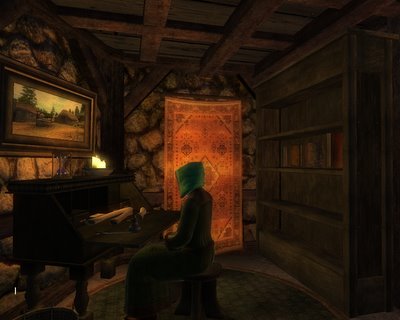The GDC was where several interesting Will Wright innovations were unveiled... such as the sure-to-be-a-AAA-title USBEmily. But he also presented an early demo of several gameplay prototypes and fortold of thousands upon millions of objects, each procedurally generated and user defined, wrapped up into 3K files and archived by a massive database.
This massive database of every player's creations would rank, sort and weigh each item and make it asynchronously available to every other player's universe. You could then "shop" for creations you like, browse archives and even automatically populate your space with balanced flora and fauna automagically pulled from other users.
This just struck me recently when waxing rhapsodic about Creatures, a game I was way addicted to back in the good ol' college days. There the strength of the game was creature building with learning & adaptive AI, breeding and genetic algorithms. It was quite cool and allowed for much procedurally and user generated content, which players loved to post to fan sites. So you'd browse fan sites, find Norns or DNA strands you liked, download 'em, hack the game, install them, then relaunch. Here, Will is streamlining the entire process: browsing, collecting and installing them is the game.
I know this is old news for many people out there... but the thing that really got me thinking about it was a recent article in Business Week. Yup, Business Week. Will's idea is making huge splashes in the business side of gaming; think about it: you're now having your user base become your artists, transferring all rights for their creations directly to you. They make the stories, the artwork, the worlds. And these creatures and structs aren't just limited to encounters in your game space... they transcend the digital world into cross-marketing with card games as well.
For those of you keeping count: Spore is a minigame, Pac-Man clone, RTS, 3rd person adventure (i.e. Diablo-style gameplay), creature builder, construction sandbox (i.e. SimCity), social game (i.e. The Sims), and action card game. Lessee... Will has basically covered every genre fanatically devoured by casual and hardcore gamers alike. You couldn't make Spore more addictive if you laced it with crack.

Speaking of which... I never knew Robin Williams was a big FPS fan. My friends... I give you the figurehead of our emergent demographic.
